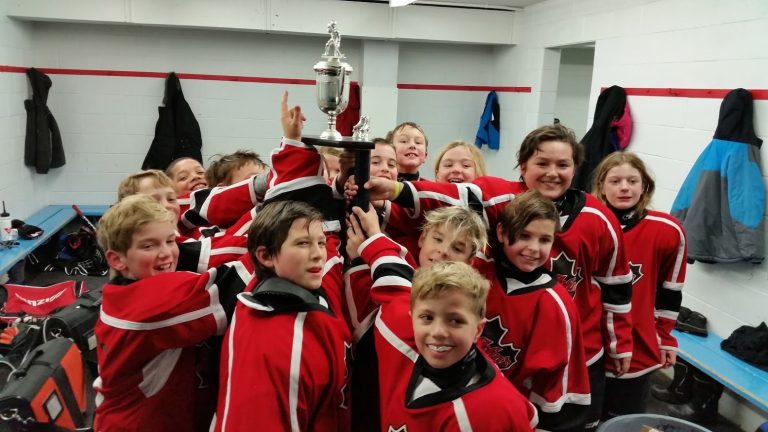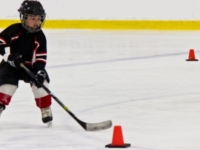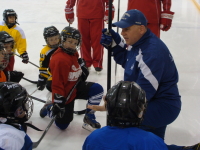Minor hockey tournaments can be fun, exhilarating, and rewarding experiences. They give youth teams a chance to really put themselves to the test and compete against the fiercest competition. It allows young players to gain experience and exposure in a high-pressure world and to continue to hone their skills as they develop. But have minor hockey tournaments become too intense for our kids?
These days, there are numerous tournaments available for any team to participate in. Some teams even play in multiple tournaments at the same time. Opponents argue that we would never force professional players to play several official games in a single day, so why are we letting our children do so?
Let’s look at some of the pros and cons of hockey tournaments and investigate whether they are becoming too much for our young players’ development.
Pros of Minor Hockey Tournaments
- More time to develop – as a player participates in more tournaments, he or she will be accustomed to playing under pressure and will have the opportunity to continually improve skills in official games.
- Rewarding Experience – Winning a tournament is an incredibly rewarding feeling that can help teams bond and give individual players more confidence.
- Entertainment – Players often enjoy the time spent together while on the road during a tournament, and parents get a kick out of the excitement that the games bring them.
Cons of Minor Hockey Tournaments
- Too many games, too little time – Hockey tournaments often pack a lot of games into a short period of time, sometimes making players take part in multiple games in a single day. This can be tough on a family who must stick to a schedule.
- Burnout potential – Because of this cramming of games, players may find themselves burning out quickly. This is dangerous as playing tired could lead to injuries that might render them unable to play in any upcoming tournaments. (Not enough recovery time for the body and mind)
- Less practice time – Although in-game experience is extremely important, taking part in too many tournaments can eat into important practice and training time. Some skills can only be taught outside of the game, and players need to be able to take some time off of the ice to recover and condition themselves.
Coach and Parent Perspectives
Many coaches and parents have begun to question whether they are putting their young players through too much stress when they take place in so many tournaments. Sometimes, teams are asked to play as many as 7 official games in the span of 3 days. How can a coach prepare for that and include practice and team meetings while staying sharp enough to execute on the ice? And that’s just the coach. Imagine the stress that is put on the young players who are essentially asked to play hockey non-stop for a half week – often in back-to-back tournaments.
Parents have become more vocal about the effect that these tournaments can have on their children. These effects aren’t just physical – they are mental and emotional as well. If a team plays tournaments like this throughout the year, players will miss out on a lot of time with their family and friends. When they finally get a break, they are often exhausted and worn down, unable to participate in social events as they would normally be able to.
More overworked than Pros
In the NHL, a team never has to play more than 2 games in 2 days, and those back-to-back games only happen a handful of times throughout the season. Compare this to minor tournaments where players sometimes participate in 3 games in a single day – and that’s often with a smaller roster than that of an NHL team. If there are rules preventing professional hockey players from being overworked, why don’t we have those same rules for youth players?
It can be argued that young players have more energy, but it should also be considered that they are still developing and may very well need longer recovery times than the pros. Risking exhaustion or injury because of an amateur tournament can have long-term implications on a player’s ability to succeed in the future. If we can accommodate the requests of NHL players, we should be able to do the same with minor players.
What’s the Verdict?
Nobody that plays hockey would argue that tournaments are a bad thing. They are a beneficial and fun way to improve your hockey skills and bond with your team. Coaches and teams should be encouraged to participate in tournaments regularly, as it is important to see how you stack up against the competition and to continually work on making the team better as a whole.
The problem isn’t the tournaments themselves – the problems is the sheer number of tournaments that many minor players are expected to participate in. When players are asked to skate in 3 games in a single day, there’s something wrong with league expectations. Minor players, especially those on the younger end, need far more time to recover and should be given the chance to rest between games and between tournaments.
How to Help
If you are a coach, you can do your part by limiting the number of tournaments to which your team applies during the year. Some players may be interested in playing more, but they can skate for other teams in different tournaments if they desire. It is in your team’s best interest to keep your players well-rested and well-trained.
As a parent, you should encourage your child to take place in tournaments, but don’t overdo it. Let him or her decide how much they can handle, and make sure to provide them with other, non-hockey related activities as options. Even if your child is extremely passionate about hockey, they need some time away from the sport in order to live a well-rounded life and to bring their highest level of intensity to the ice when they do skate out onto it.






